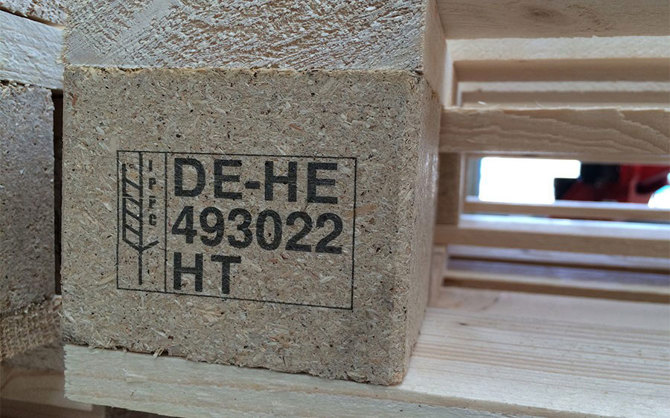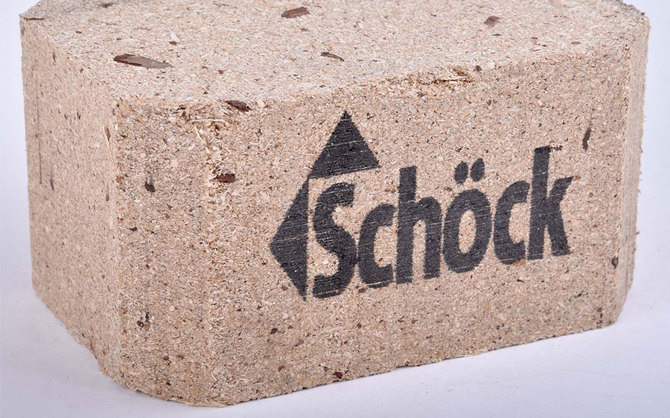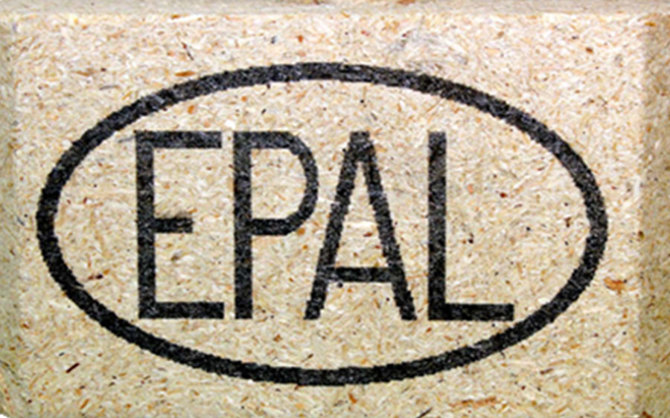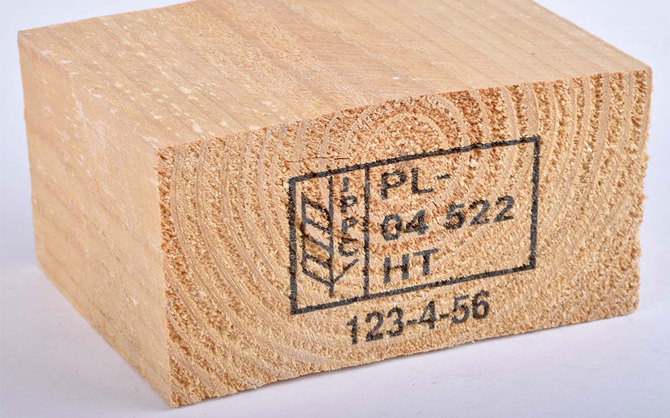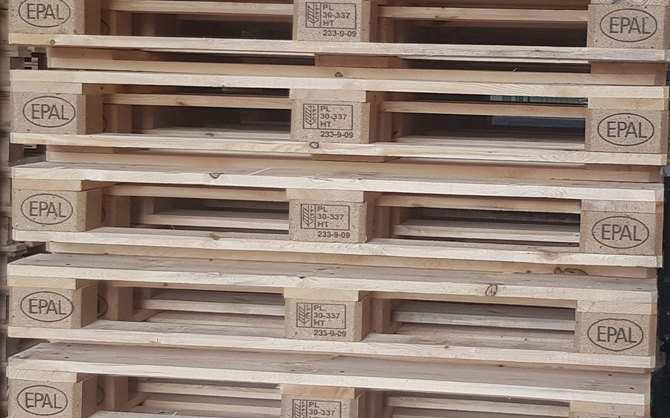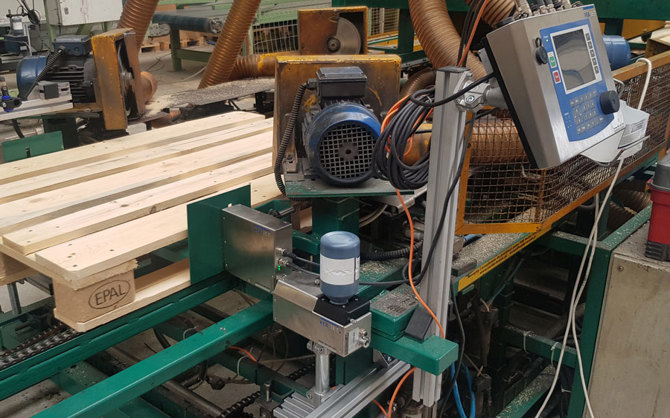EPAL, IPPC, EUR and Logos
Pallets are always in use in logistics as a means of transport and storage, are used worldwide and have become indispensable. They optimize transport, storage in confined spaces and the loading of stackable goods. Sometimes they are disposable pallets, sometimes reusable pallets. Sometimes they are made of wood, sometimes they are made of plastic, corrugated cardboard or steel. The variety is huge, as are the requirements for pallet marking.
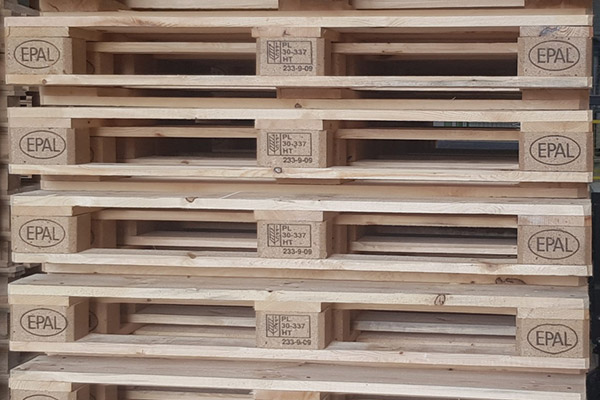
Pallets must be clearly identifiable and tamper-proof. This is achieved by marking the pallet blocks, which are manufactured in different shapes, sizes and numbers. The pallet blocks provide information about which organization manufactured the pallet or whether the pallet is free of pests (IPPC marking). In addition to the standardized, required marking of pallets, alphanumeric information or manufacturer logos can also be found on the pallet blocks. Depending on the requirements, the print content for pallet marking also varies.
In order to react quickly to changing print content, a flexible marking system is required. REA has addressed precisely this requirement with the development of the new REA JET GK 2.0 PA (Pallet Application). Small batches, order-related print jobs and large batches can be flexibly marked with the software extension of the REA JET GK 2.0 PA – regardless of the pallet type.
For this purpose, the number of blocks to be marked and the print content to be printed are stored on the controller. After successful printing, the next pallet from the same series or the next print job follows. In the case that printing was not triggered for each block and thus the defined number of blocks was not marked, a signal can optionally be issued to stop the conveyor system. In this way, the software ensures that only perfectly and clearly marked pallets are produced.
An alternative solution is offered by the REA JET HR inkjet printer with its maintenance-free, cartridge-based printing technology. With this coding and marking system, print content up to 50.4 mm print height (12.7mm per print head) can be applied directly to absorbent surfaces in a clean, environmentally friendly and solvent-free manner.
Applications
Areas of service application
- Marking of disposable and reusable pallets.
- EPAL marking (European Pallet Association e. V.) on corner blocks.
- IPPC marking (International Plant Protection Convention) on center blocks.
- Unique marking.
- Logo marking.
- 2D codes Alphanumeric information.
- Small batch marking.
- Variable print content.
- Large batch marking.
